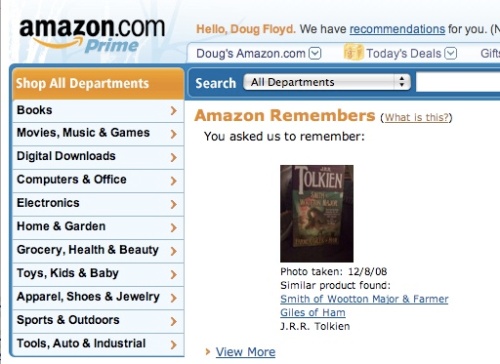As reports of financial chaos echo through the world each day, we may begin to feel like Modern Romans watching our world collapse.
I still think the world collapsed about 90 years ago, and the collapse has been rippling across institutions and nations every since. The church’s initial response to a modern notion of progress that was built on an overconfident secular humanism was to turn inward, building a bulwark around the orthodox truths of our faith. I’m not just thinking about fundamentalism.
As the modern world forgot our past and assumed that we could do not wrong, men like G.K. Chesterton and C.S. Lewis emerged to warn of the dangers of this blind pursuit of man’s unlimited potential. Chesterton (Apostle of Common Sense) and Lewis (Articulator of Mere Christianity) defended the past against a false future built on empty ideas of human progress that denied our need for grace (and God). In one sense, the church spent the 20th century defending the past and building fortresses around the past to protect it.
This was what the times required. But a few prescient thinkers, drawing inspiration from men like Chesterton and Lewis began to speak of the future, a Christian Future. Eugen Rosenstock-Huessy wrote and taught about articulating the future (and the cost associated with creating this future).
Two future thinker-actors were Augustine and Luther. They both lived at the end of an age. They articulated the future. When Augustine wrote “The City of God,” Rome was literally in flames due to invasions by tribal people (the terror may have felt much like the attacks from our terrorists today). He wrote that book when Rome was already a Christian empire and the pagans were accusing the Christians of the downfall of Roman power.
Augustine’s book was a defense of the faith, and in it he suggested that the city of man will never be perfect. It will never be the city of God. So all man’s system are doomed to fail until God finally establishes his city on the earth. Augustine’s ideas about the city of God inspired the people who came after him to rebuild the world that was falling apart.
The Roman empire never came back. But the empire eventually shifted into the image of Christendom when all of Europe was a Christian land. In some parts of Europe (United Kingdom, Germany, Netherlands, etc), barbaric tribal cultures were Christianized and eventually all shared a common culture and belief on the Lord. In spite of today’s bad press, there was much praiseworthy in this medieval world. (Just see Chesterton, Belloc, Lewis, Tolkien and others.)
But Christendom was not the final glory. It crumbled during the 14th and 15th centuries, leading to (or revealing) massive corruption in the church and a breakdown in the culture. In the mid to late 14th century many people were certain that the end of the world was at hand. But by the early 16th century, Martin Luther emerged to cast a new vision of what could be. (I realize that he was one voice among many. While not disparaging their contributions, he is the one who became the articulation of the future.)
His ideas led to the formation of the Protestant church, opened the door for massive developments in science, and eventually took shape in our democracy and the emergence of a modern world. (This is way oversimplified does not take into account many other significant developments.)
Now we live at the end of that world. Is it the end of time? I don’t know. If it’s not, then God will once again raise up voices who will proclaim the gospel in a way that will reshape the culture and the world. In the end, America may not look the same. It may not even be America. But God will do something glorious that will lead to a greater spread of his word.
As we acknowledge the bankruptcy of modern progress, we must move in step with what the times requires. The times require thinkers, writers, artists, musicians, and more to articulate a Christian Future.
The impetus is upon the people of God to proclaim the kingship of our Lord Jesus, and to create under subjection to His rule. The prophet who has always inspired me about creating the future is Ezekiel. He is forced to change from priest to prophet because the times required it.
From the land of exile, Ezekiel sees, eats, acts, and lives out his fantastic visions. He articulates a future Israel through word-act. We are being called to be a people who articulate the future through word-act. This often means being derided as crazy and schizophrenic like Ezekiel. We must not fear but step forward into the foolishness that will usher in a new world.
Our attempts to define every aspect of the end times has often short-circuited our ability to see forward. We’ve become like businesses who live from payroll to payroll or quarter to quarter. Rather, we must become people who live between the garden and the New Jerusalem, learning to see and hear more clearly. As we see and hear, we must speak-act the Word of the Lord.
We are people who live in between the times. Like Ezekiel, we know exile too well. And sometimes we grow bitter and weary in heart. But like Paul we press on for the high calling of God. And like John we keep our eyes on Jesus, the Alpha and Omega, the groom, the Lord of Glory who is coming for a people who are without spot.

